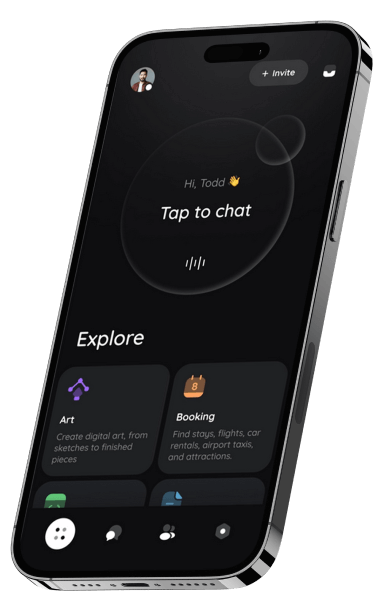
Rule-Based Chatbots
Rule-based chatbots operate on predefined scripts and decision trees. These bots follow a structured flow and only respond to specific commands or keywords set by developers.
Chatbots are revolutionizing the way we communicate! From answering customer queries to providing personalized assistance, these AI-powered tools are transforming businesses and everyday interactions.
Get Started Free







Chatbots are software applications that use artificial intelligence and predefined scripts to communicate with users. They can handle inquiries, automate repetitive tasks, and assist users in various industries. With advancements in AI and machine learning, modern chatbots can understand context, process natural language, and provide human-like responses, making interactions more engaging and effective.




Chatbots function using Natural Language Processing (NLP), machine learning, and predefined rules to interpret and respond to user queries. Some bots rely on structured decision trees, while AI-powered bots can learn from past interactions. The sophistication of a chatbot depends on its underlying architecture, from simple rule-based bots to advanced AI-driven conversational agents.
Chatbots are implemented across multiple industries, providing solutions for customer support, sales automation, education, healthcare, and more. They help businesses scale their operations, reduce costs, and enhance customer satisfaction. Many businesses use chatbots as the first line of interaction before human agents step in for complex issues.
Chatbots offer various advantages, including cost savings, 24/7 availability, and improved efficiency. They help businesses optimize workflows while providing users with instant responses and support. Companies that implement chatbots experience increased productivity and customer satisfaction.



Rule-based chatbots operate on predefined scripts and decision trees. These bots follow a structured flow and only respond to specific commands or keywords set by developers.

AI-powered chatbots use machine learning and Natural Language Processing (NLP) to understand and respond to user inputs dynamically. These chatbots can improve over time based on interactions.

These chatbots use speech recognition and text-to-speech technology to interact with users through voice commands. They are commonly found in smart assistants and call center automation.

Hybrid chatbots combine rule-based responses with AI-powered processing, offering flexibility in handling user inquiries. They provide structured guidance while allowing AI to handle unexpected queries.

These chatbots are specifically designed to work on platforms like Facebook Messenger, WhatsApp, Instagram, and Telegram. They help businesses engage with users directly through social media messaging.

Transactional chatbots assist users in completing specific tasks, such as booking tickets, ordering food, or managing financial transactions. These bots streamline business processes and improve customer convenience.